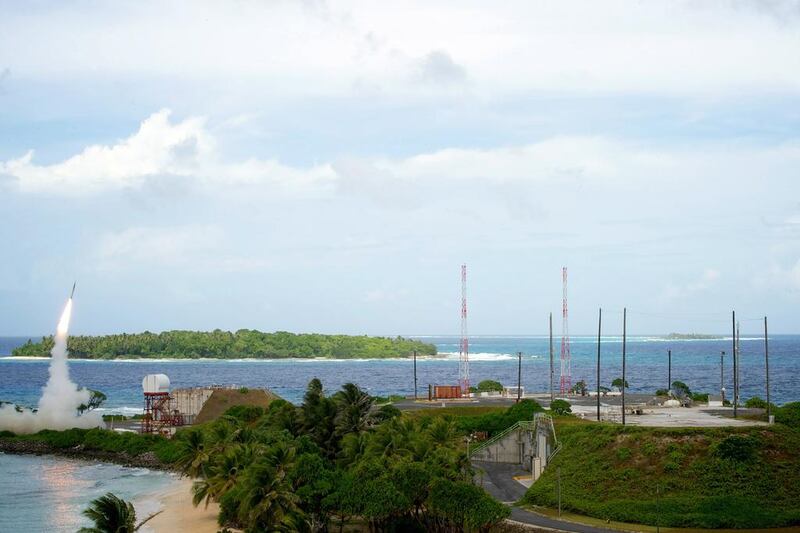Lockheed Martin expects to begin delivery of its Terminal High-Altitude Area Defence system (Thaad) to the UAE by the end of next year, making the Emirates the first country to deploy this technology outside the United States.
Dan Lin, an official at the international business development unit of Lockheed Martin Space Systems, was speaking at the opening of Lockheed Martin’s Centre for Innovation and Security Solutions, located in Abu Dhabi’s green energy Masdar City.
The centre, at Masdar Institute’s building, is expected to boost collaboration with the Maryland-based firm and various UAE agencies.
“They [Lockheed Martin] will start deliveries [of Thaad] here in the UAE late next year,” said Mr Lin.
In 2011 the UAE became the first country outside the US to order two Thaad Weapon Systems and additional maintenance and support equipment. Thaad is a system that intercepts short and mid-range ballistic missiles. The UAE already deploys Lockheed’s short range Patriot Advanced Capability-3 (Pac-3) defence system.
In 2012 the UAE ordered 48 Thaad missiles, parts and logistical support at an estimated cost of $1.13 billion. The country also placed an order last year.
The UAE is in talks with Lockheed Martin over the multibillion-dollar sale of 30 F-16 Block 61 aircraft.
Arabian Gulf countries, including the UAE, are boosting defence spending as terrorism threats intensify amid the political upheaval in the Middle East and North Africa region.
The UAE is expected to more than double spending on military imports by 2015, according to a study released in February by UK-based IHS Jane’s, an intelligence provider to militaries, government, intelligence agencies and industries.
The country was ranked the second-biggest defence importer in the Middle East, behind Saudi Arabia and is forecast to be the world’s No 3 defence importer in 2015, according to IHS Jane’s.
In addition to their collaboration in defence, Lockheed Martin is eyeing a deal with the UAE space agency, which is planning to launch an unmanned mission to Mars by 2021.
Lockheed Martin has collaborated with every Mars mission Nasa has conducted, according to Maria Ruess, a vice president at the international business development of Lockheed Martin Space Systems Company.
“We know that the UAE has now created a UAE space agency with a target by 2021 to send an unmanned probe to Mars,” said Ms Ruess. “We are very excited about collaboration on that effort, and we have a lot of expertise because of our knowledge with Mars.”
Lockheed Martin built the Orion spacecraft, which fell into the Pacific Ocean on Friday after completing its first test flight of Nasa’s deep space exploration capsule.
The US company is also talking to satellite communications companies in the UAE, such as Dubai-based Thuraya and Abu Dhabi-based Al Yah Satellite Communications Company (Yahsat), which is owned by Mubadala, for satellite technology, she added.
Lockheed Martin is co-operating with Masdar Institute to manufacture a membrane that will get rid of bacteria in desalination plants.
Tushar Shah, chief innovation officer at Lockheed Martin MST New Ventures, said: “When you want to utilise this you are talking about hundreds of thousands of acres of this material.”
Lockheed Martin is also working with Masdar Institute on producing solid electrolyte to build the world’s first solid-state lithium battery. Currently, lithium batteries contain liquid electrolyte, he said.
Unlike the liquid lithium battery, the solid lithium battery lasts longer and dissipates heat, he added.
“We are demonstrating that it works, and works for a long time. We need to prove the chemistry lasts for a very long time before we go to partners,” said Mr Shah. “We would love to make it in the UAE.”
selgazzar@thenational.ae
Follow The National's Business section on Twitter





